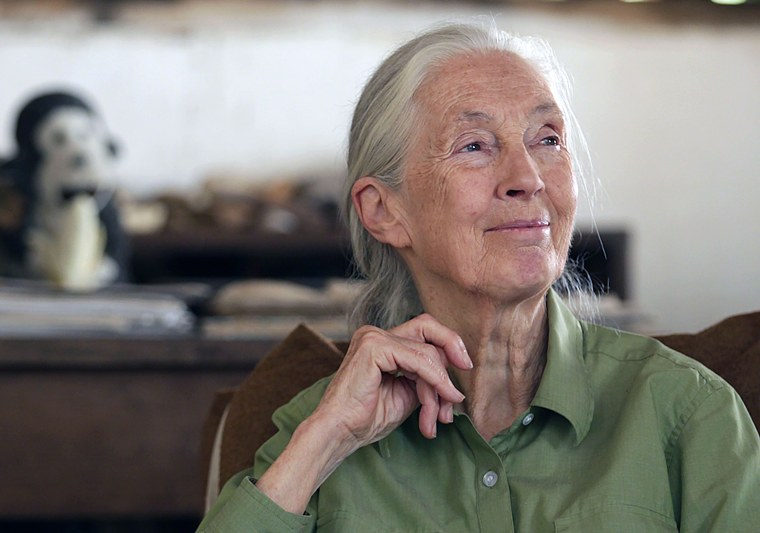When it comes to our environment – and the recent, unprecedented wildfires, hurricanes and other devastating effects of climate change– there are many reasons to be pessimistic. But world-renowned ethologist, environmentalist and activist Dr. Jane Goodall is choosing to remain hopeful about the future.
“If we don't have hope, then we tend to fall into apathy. And if we fall into apathy, we tend to do nothing,” Dr. Goodall, 89, told Huma Abedin, an MSNBC contributor and vice-chair of Forbes and Know Your Value’s 30/50 Summit. “…Without hope, you're not going to roll up your sleeves and get out there and do something to change the world. Because we are living in very dark times.”
Dr. Goodall said what gives her hope is young people who believe in a better future, adding she wants to “live long enough to spread my [conservationist] message far enough around the world.”
Dr. Goodall is known for her groundbreaking studies of wild chimpanzees in what is now Gombe, Tanzania, in addition to blazing a trail for countless women in science. She recounted being dismissed as “just a girl” when she expressed a desire to be a scientist, travel to Africa at age 26, live with wild animal, write books and more.
“I've had times in my life when I felt discouraged and depressed,” recounted Dr. Goodall. “…Everybody laughed at me, when I first decided I was going to grow up -- I was 10 – and go to Africa, live with wild animals, and write books about them … But you see, the secret was I had an amazing and supportive mother. And she said to me … ‘If you're going to do something like this, you have to work very hard and take advantage of every opportunity. And if you don't give up, hopefully you find a way.’”
Dr. Goodall found a way. Her revelatory observation that chimpanzees make and use tools rocked the scientific landscape and forever redefined our understanding of the relationship between humans and other animals.
She has since created conservation organization, the Jane Goodall Institute, along with Roots & Shoots, an international youth program geared toward creating positive change in more than 65 countries. She is also in the new film “Jane Goodall: Reasons for Hope.”
Abedin asked Dr. Goodall what her advice is to young people who feel like their voices aren’t being heard, or to those who feel overwhelmed by all the environmental challenges we face.
“What I say to them is, OK, you can't save the world. No individual can. But what are you passionate about? Maybe it's the plastic that's killing wildlife, especially in the ocean. Maybe you want to plant trees so that you can withdraw more C02 from the atmosphere. Whatever it is, go to your local community, get some people with you and take action. And when you take action, you find you can make a difference.”
